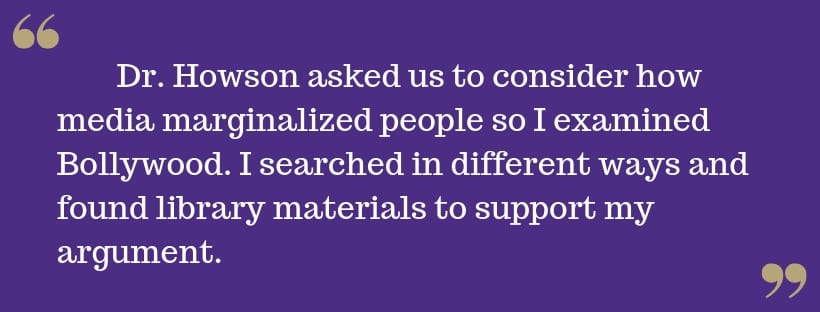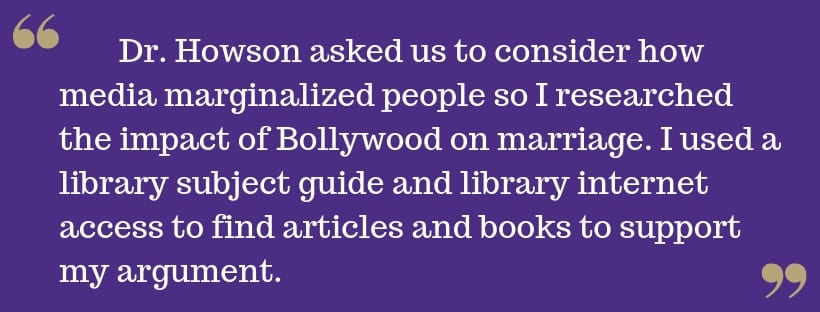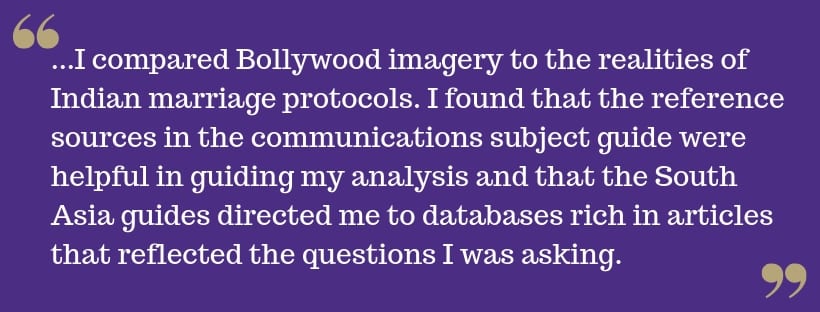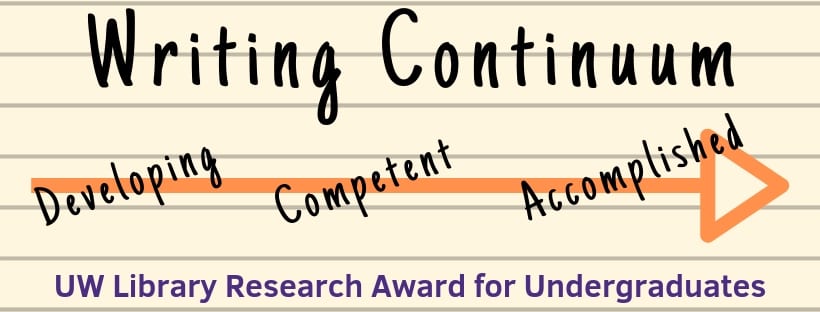Last week we pointed out that the reflective essay portion of your UW Library Research Award for Undergraduates application is worth half of your total evaluation. This week we’d like to elaborate on how that section is scored.
Just like some of your courses, your essay will be assessed according to a rubric. They’re designed to give you every clue you might need to understand how the grader is judging your work. These are the continuum of aspects the judges expect to see in your paper. As they compare your efforts against the standards the rubric has set, they assign points. You’ll see that this describes 3 areas: Developing, Competent, and Accomplished. As you can see from the assignable points you’re going to want to aim for the “Accomplished” criteria as much as possible
Let’s look at a “Developing” writing example:

Reread the above two sentences and consider the following:
- How was topic developed?
- How was their argument developed?
- What kind of search strategy was used?
- Did they use a librarian? Online subject guide?
- Did they use a database? If so, why that database?
These sentences do not reveal anything about their research journey.
Now, let’s look at a “Competent” writing example:

Consider:
- Topic is developing in a direction but needs refinement
- The search tools are listed but not how they’re used
- We don’t know how the writer evaluated their resources
Don’t just “check the box” — let us know that you know how to research!
Finally, here’s an example from an “Accomplished” paper:

Notice:
- The research question relates to the assigned topic
- Awareness of different kinds of resources and how they were used
- Creative approach in using one guide for help with analysis and another for sources
This is just a tiny portion of the 1,000 words you’ll be using to illustrate your research journey, but the level of detail is important. Download and follow the essay rubric:
http://www.lib.washington.edu/researchaward/students/2018LibraryResearchAwardRubric.pdf
If you need help taking your essay from “Developing” to “Accomplished,” make a free appointment with the Teaching and Learning Center for a 25-minute writing consultation.
By the way, the final example above is from “Bollywood Images: The illusions and realities of arranged marriages, weddings, dowries, and attitudes toward the girl child in the lives of women in India,” a 2012 winning essay by UW Tacoma alumna and Teaching & Learning Center writing expert Margaret Lundberg!
Questions? Visit our page of Frequently Asked Questions or contact the Library Research Award for Undergraduates Committee (libaward@uw.edu) regarding the application process, eligibility, or the competition in general.
These awards have been made possible by The Kenneth S. and Faye G. Allen Library Endowment, the Friends of the Libraries, and the Population Health Initiative.
